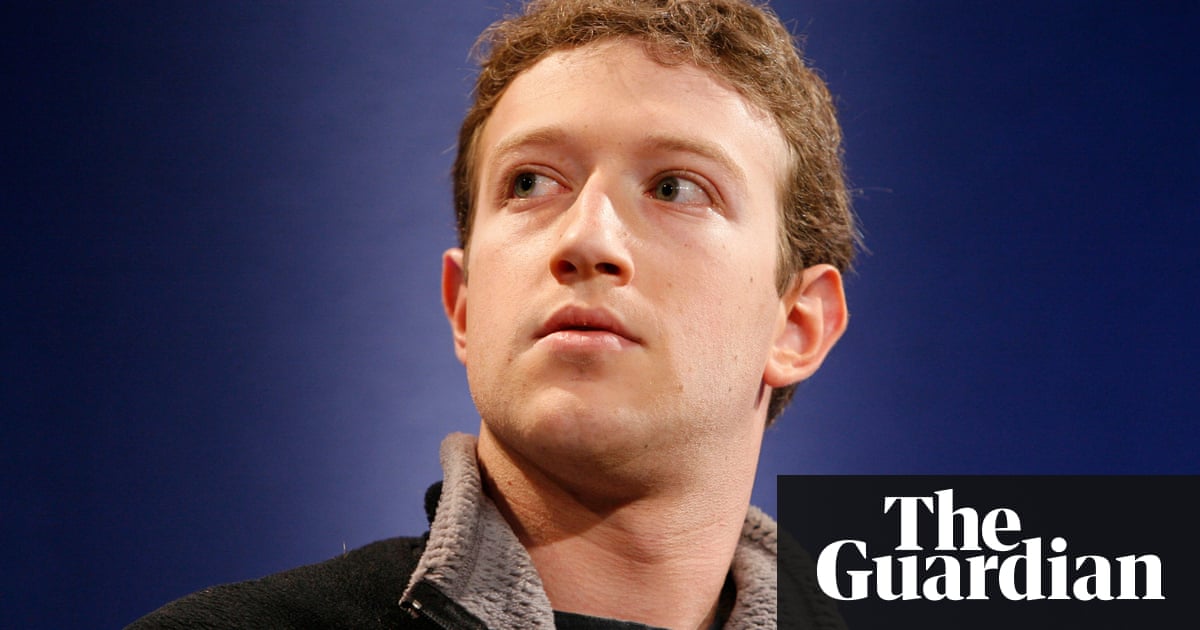The Facebook chief has carefully crafted his image of boy genius turned mature leader. Now hes losing control

At this time last year, it seemed reasonable to assume that Mark Zuckerberg was taking the first steps on a journey toward Washington DC – 1600 Pennsylvania Avenue, to be precise.
The Facebook chief executive had just completed one leg of a whistlestop tour around America that was fueling rumors of a Zuck 2020 presidential run. His Facebook profile was serving up a stream of photographs featuring Zuckerberg in a variety of politically symbolic encounters wearing politically appropriate facial expressions: serious and engaged at a boardroom table with military leaders; warm and open at lunch with military spouses; respectful and besuited at a black church in Charleston; confident and manly at a Nascar racetrack.
Twelve tumultuous months later, Mr Zuckerberg is indeed going to Washington – but it’s to testify before both houses of Congress about the massive data harvesting scandal that has enraged the public, knocked tens of billions of dollars off Facebook’s valuation and reignited calls for government regulation.
The shine is off Zuckerberg’s attempt to play statesman. The upcoming spectacle of the aging wunderkind being forced to entertain the probing questions of actual statespeople promises to recast Zuckerberg in a very different role: the embattled CEO eating congressional humble pie.
The exercise is practically an American tradition – executives from airlines, banks, credit agencies and tobacco companies have all been there. But for Zuckerberg, a CEO whose personal image is inextricable from that of the company he founded, it is symbolic of his loss of control of the narrative.
“We now are entering what I would call the third era of Zuck,” said Tim Hwang, who founded the California Review of Images and Mark Zuckerberg, a journal of academic essays on the “visual culture of Mark Zuckerberg”. Hwang sees Zuckerberg as a sort of techie Madonna, cycling through personas as he matures, both shaping and reflecting the culture.
First there was Zuck the “plucky in the college dorm room hacker guy”, said Hwang, who is also director of the Harvard-MIT ethics and governance of AI initiative. Then came “Zuck as world leader” – a period that saw the CEO travelling the world, meeting with elected leaders, occasionally donning a suit and speaking authoritatively about his global ambitions and social values. Zuckerberg and his public relations team successfully exploited Facebook’s signature blurring of the lines between the personal, political and commercial to create “Mark Zuckerberg”: the responsible boss, good husband, loving father, daring philanthropist and credible world leader.
Hwang calls this new era Zuckerberg’s “in the wilderness phase”. “This is one of those moments where we’re really fascinated because this huge PR machine has sort of cracked and we can see through, and what we can see is someone way over his head,” he said.
The tarnishing of Zuckerberg’s carefully constructed image had begun well before the Observer’s 18 March report that a Trump-connected political consultancy had improperly obtained Facebook data on 50 million Americans – a number which, on Wednesday, Facebook revised up to possibly as high as 87 million.
That was clear when Wired magazine’s March 2018 issue featured a photorealistic illustration of Zuckerberg’s face bruised, bloody and dripping with sweat – a complete transformation from the same publications December 2016 cover, which presented Zuckerberg the way he likes to look: casual, smooth-faced and neutral. “Could Facebook Save Your Life?” the banner headline asked. (No, 2018 responded.)
It wasn’t just Cambridge Analytica, the 2016 election and Russian influence operations. The scandals of the past 18 months are too numerous to count, and encompass issues as serious as violating civil rights laws, collaborating with dictators and fueling ethnic cleansing.
But Zuckerberg’s flat-footed response to the data harvesting scandal felt like a turning point. For five full days, Zuckerberg remained silent. People who turned to Zuckerberg’s Facebook profile in search of a response from the company’s leader found only a snapshot of the CEO and his wife baking hamantaschen for Purim.
It was the kind of photo that, in earlier times, burnished Zuckerberg’s appeal to the middle-aged moms who wish their daughters would settle down with a nice, rich boy from Jersey like him. But with tens of millions of users feeling that their trust in the boy wonder had been misplaced, the message was more millennial Marie Antoinette: “Let me eat cookies.”
Read more: www.theguardian.com








![[Video] How to get rid of bed bugs in Toronto](https://www.thehowtozone.com/wp-content/uploads/2019/10/maxresdefault-2-100x70.jpg)


